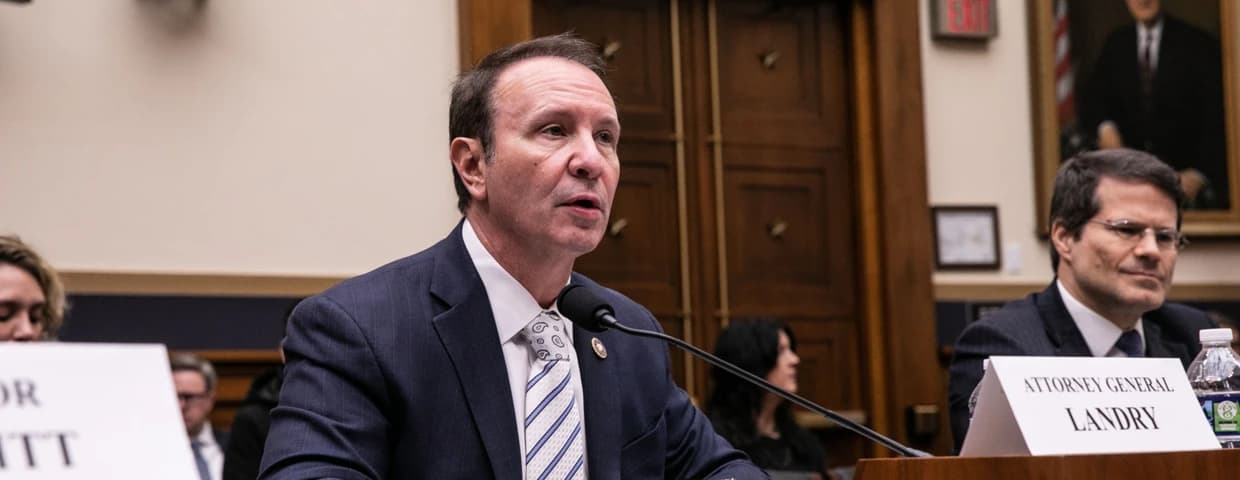Natural Gas Legally Redefined as Clean Energy
In a stunning move that disregards both environmental science and public health, Louisiana has officially redefined natural gas as a "green energy" source. This legislation, signed into law by Republican Governor Jeff Landry, allows natural gas to compete for funding with solar and wind projects in a state that already heavily relies on fossil fuels. This law comes as part of a troubling trend across the U.S., with similar measures popping up in Ohio, Tennessee, and Indiana, all echoing language crafted by the American Legislative Exchange Council (ALEC), a right-wing think tank funded by oil and gas billionaires like Charles Koch.
Legislative Manipulation Driven by Fossil Fuel Interests
The Louisiana law mandates that to reduce its reliance on "foreign adversaries" for energy, natural gas and nuclear power must be eligible for all state programs funding "green energy" initiatives. However, this is nothing more than a dangerous form of greenwashing. Natural gas is primarily composed of methane, a greenhouse gas with a heat-trapping potential many times greater than that of carbon dioxide, as reported by the MIT. The transition to natural gas is often marketed as a cleaner alternative to coal, but research shows that over time, the emissions from natural gas may be just as harmful to our climate.

Lobby of Louisiana"s Old State Capitol Building in Baton ...
Legislator Ties to the Fossil Fuel Industry Raise Red Flags
State Rep. Jacob Landry, who introduced this bill, has deep ties to the fossil fuel industry, receiving over $20,000 in campaign contributions from at least 15 fossil fuel-affiliated companies, including ExxonMobil and Phillips 66. Landry is not only a recipient of significant industry funding but is also a co-owner of two oil and gas consulting firms. This clear conflict of interest highlights the deep-rooted corruption plaguing Louisiana"s legislative process, a situation described as "classic greenwashing" by Laura Peterson, a senior analyst with the Union of Concerned Scientists.
Implications for Energy Reliability and Public Health
According to a 2025 report from the Louisiana Legislative Auditor’s Office, Louisiana"s electricity grid is among the least reliable in the nation, primarily due to its dependence on natural gas. The auditors stress the urgent need for diversifying energy sources to improve reliability, especially in the face of extreme weather events that frequently impact the region. Instead of transitioning to renewable energy sources, this new law facilitates the expansion of fossil fuel infrastructure, perpetuating a dangerous cycle of dependency on gas, as highlighted in the EIA report.

Climate groups notch big win on LNG - E&E News by POLITICO
Widespread Criticism from Experts and Activists
Jeffrey Clark, president of the Louisiana Advanced Power Alliance, testified against the bill, emphasizing that it offers a solution to a problem that does not exist. The legislation not only ignores the growing body of evidence advocating for a diversified energy portfolio but also promotes a future reliant on fossil fuels. Critics argue that reclassifying natural gas as "green" undermines genuine renewable energy initiatives and continues to exacerbate the climate crisis. The prioritization of natural gas funding over solar or wind projects could hinder progress toward a sustainable energy future, as noted in the Department of Energy emissions fact sheet.







![[Video] Gunfire between Iraqi security forces and Sadr militias in Baghdad](/_next/image?url=%2Fapi%2Fimage%2Fthumbnails%2Fthumbnail-1768343508874-4redb-thumbnail.jpg&w=3840&q=75)
